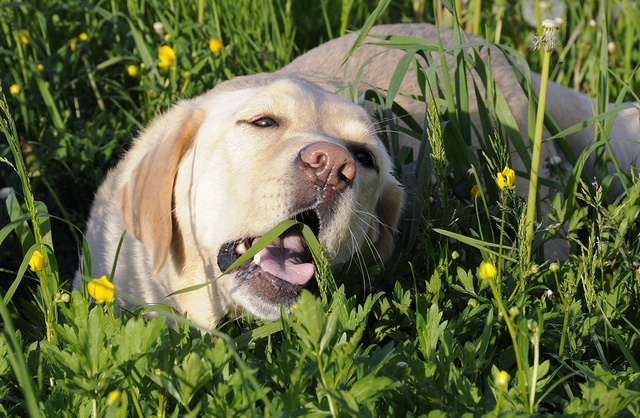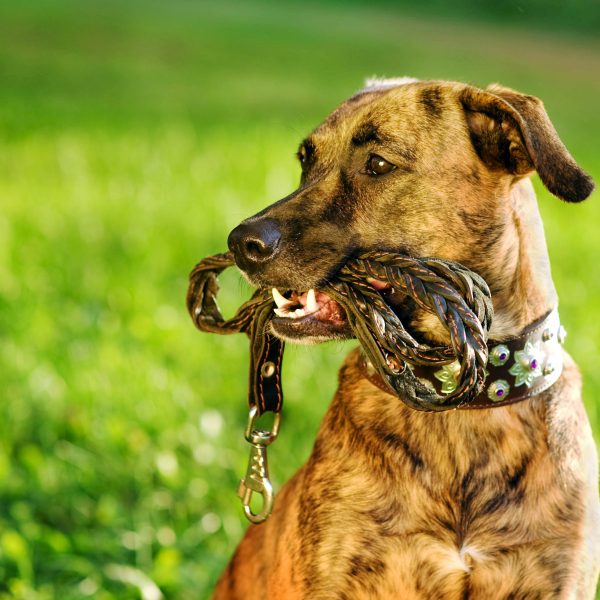Another team of researchers at the University of California, Davis conducted three separate surveys. Their hypothesis was, “Most plant eating in dogs is associated with illness or a dietary deficiency and that ingestion of plant material is usually followed within a few minutes by vomiting.”
First Survey – Veterinary Students
- Sample size = 25
- All students reported that their companion dogs ate grass
- Zero reported signs of illness before the grass-eating event
- Two students said that their dogs frequently vomited afterwards
Second Survey – Teaching Hospital Clients
- Sample size = 47
- 37 had seen their dogs eat grass
- 33 owners answered questions about their dogs’ behaviors before and after eating grass
- Four of the 33 reported signs of illness preceding the events
- Six of the 33 reported occasional vomiting afterwards
Third Survey – Web-Based
- Sample size = 1,571
- 1,068 said their companion dogs ingested plants daily or weekly
- 126 (8%) indicated that their dogs frequently showed signs of illness before plant-eating
- 346 (22%) reported regular vomiting after plant eating
- Of the 1,068, younger dogs were more apt to eat plants rather than older dogs, and did not appear ill beforehand or vomit afterward
- If dogs showed signs of illness before eating, they were more likely to vomit afterward
The survey from the team at UC Davis asked specific questions relating to diet. They determined that diet – which varied from kibble to raw – did not impact the plant eating. Additionally, dogs receiving less fiber in their diets did not tend to eat more grass than dogs getting more fiber.
They concluded, therefore, that grass eating is a common behavior in apparently normal dogs that is unrelated to illness or vomiting. Of course, their caveat was that a subclinical GI distress may provoke grass eating occasionally. Indeed, pet caregivers that have contributed to our NutriScan Case Studies have stated that before the food sensitivity testing was conducted, they believed their dogs ate grass to calm their stomachs. After adjusting their diets according to the Nutriscan results, caregivers noted that the diet change helped curb or stop the grass eating habit.
The UC Davis team’s current hypothesis is that plant eating helped our canine and feline ancestors purge nematodes (intestinal parasites). This habit has been observed in chimpanzees because the plant leaves increase bowel motility, can wrap around the nematodes and thus flush them out of the body. They also correlated this hypothesis with younger dogs eating plants more often than older dogs because they are less resistant to intestinal parasites. This fascinating theory truly needs to be studied. And who knows? Perhaps we could replace some conventional dewormers with plant-based options. Please note: this comment is not meant as a suggestion that you give your dogs plants in lieu of intestinal dewormers. We need to wait for research clinical trials to be conducted.
In the meantime, let’s just let your dog do what comes naturally.
Source:
Dr Jean Dodds











